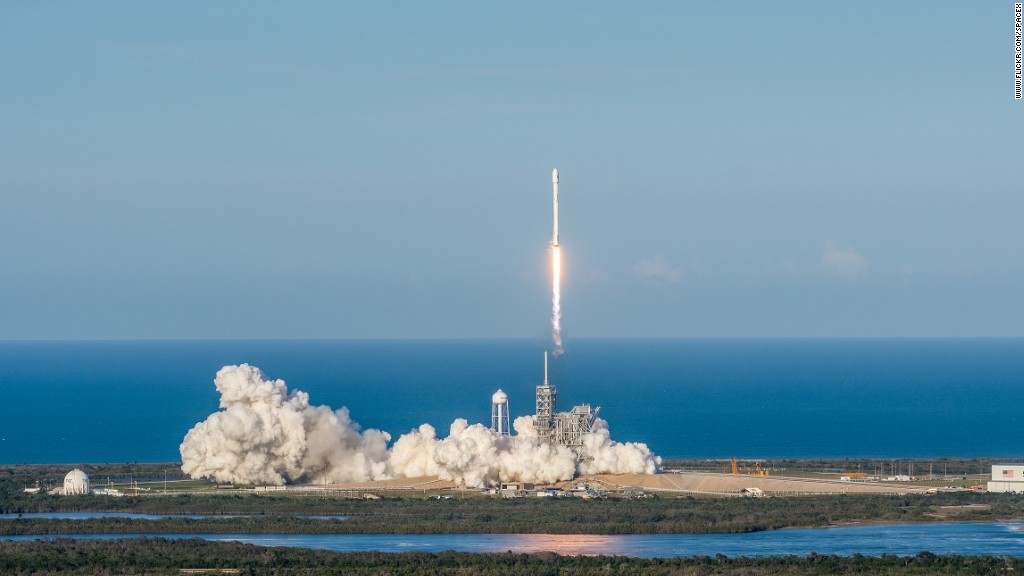
SpaceX just capped off two successful missions to space this weekend -- the company's quickest launch turnaround yet.
After it launched a communications satellite into orbit from Kennedy Space Center in Florida on Friday, Tesla (TSLA) CEO Elon Musk's private space outfit finished its run with a clean launch from California's Vandenberg Air Force Base on Sunday.
The launch Sunday marked SpaceX's ninth so far this year. The company has now surpassed the record for the most launches in a single year, which it set in 2016.
The latest mission: to deliver a group of satellites into orbit for a company called Iridium. Those satellites will join a growing network dubbed the Iridium Next system.
Iridium Next has many goals. One of its most notable is to eliminate "black zones" where commercial airplanes can't be tracked by providing global real-time surveillance of all flights.
That means missing airplanes -- like the Malaysia Airlines flight that vanished three years ago over the Indian Ocean -- could become a thing of the past.
Related: Ron Howard is on a mission to make science sexy
It will take several more launches to get the full network into orbit. The launch Sunday was SpaceX's second delivery -- it sent up the first 10 satellites in January. There will be six more Iridium Next missions over the next year.
Friday's mission was also noteworthy. It marked the second time SpaceX has reused a first-stage rocket booster, which flings the payload toward orbit. The booster was previously used in a January mission.
SpaceX wants to reuse its rockets so it can drastically slash the amount a single launch costs. The sticker price for a customer is about $62 million.
SpaceX is the only company that has recovered, refurbished and then re-flown an orbital class rocket.
Related: SpaceX kicks off rocket launch double feature
By completing its second mission with a used rocket, SpaceX has again signaled to its customers that it can safely pull off the maneuver.
Sunday's mission did not use a pre-flown booster. But SpaceX did manage to safely recover the first stage after that launch, setting it up to fly again one day.
So far, SpaceX has safely landed first-stage rockets on land or a droneship 13 times.
Correction: An earlier version of this article misstated the number of SpaceX launches so far in 2017.

